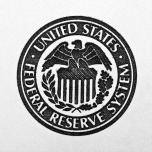U.S Federal Reserve taper affects Asian markets
The U.S Federal Reserve has reduced its monthly bond purchases by $10bn again this month, bringing the economic stimulus down to $65bn. The overnight interest rate remains unchanged from its 2008 level of 0%.
This slowly brings the Federal Reserve policies back to normal following a period of delay implemented to protect economic instability. The process quantitative easing in which U.S economic stimulus is gradually tapered won’t be complete until June or July 2014 and if the Federal Reserve continues at this cautious rate. Following this the U.S central bank is expected to increase its own interest rate.
Emerging markets have been hit the hardest by the impact of quantitative easing. An increase in global interest rates as a result of the economic stimulus taper will lead investors away from emerging economies which previously offered higher returns, and back towards U.S markets. Moving money from emerging countries to the U.S involves selling the currency which consequently decreases its value.
The Federal Reserve supported its decision to continue with its reduction in bond buying, stating that there had been “improvement in economic activity and labour market conditions… consistent with growing underlying strength in the broader economy”. However, the global reaction to its tapering will be observed and influence whether or not a further reduction of $10bn is approved in March.
Asian markets in particular have been affected badly by the U.S stimulus taper, suffering significant losses as the reductions continued for a second consecutive month. Countries including India, Argentina, South Africa and Turkey unexpectedly boosted their interest rates last week to try and inject some confidence in inward investment, but emerging markets such as these remain vulnerable.
Japan’s Nikkei 225 index has fallen 3%, Hong Kong’s Hang Seng by 1.4%, and Australian stocks by 1% as investors turn to higher rated assets such as gold and sovereign bonds.
While the tapering is a positive sign for the U.S economy as it denotes greater economic strength and reduced unemployment, the effect on the rest of the world is less than advantageous. New Federal Reserve chair Janet Yellen must decide how to go forth in this extremely volatile environment to reduce the global economic impact of the process.



